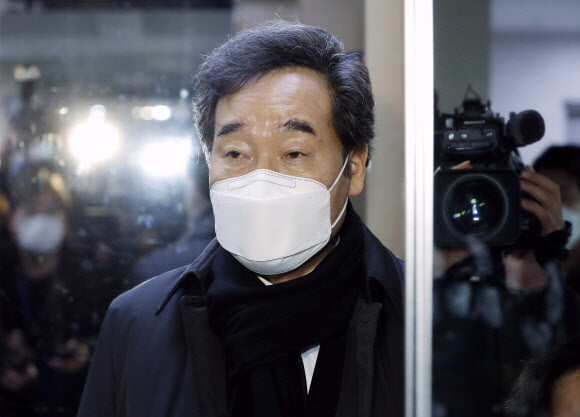
In addition, the Democratic Party’s representative Lee Nak-yeon is leaving the office on the 3rd in his office at the National Assembly Hall after completing a private Supreme Council meeting regarding the amnesty of former Presidents Lee Myung-bak and Park Geun-hye. yunhap news

‘Lee Nak-yeon’s amnesty’ did not last longer than three days. His leadership as the next runner and president of the ruling party was also hurt. The message around Lee is that what was more bitter than the criticism poured out from inside and outside the party was the complication of having to collect the’number of matches’ thrown after hard work.
I would rather have my voice heard during the’Chu-yoon conflict’
The criticism of amnesty raised inside and outside the party is largely divided into three. One is that unless the two former presidents reflect on their mistakes and apologize for their mistakes, the amnesty is absurd. The thoughts of key supporters of the ruling party and progressive voters fall into this. Second, it is inappropriate for the ruling party representative to issue the issue of amnesty, which is the president’s inherent authority. This is a remarkable response among the enthusiastic supporters of President Moon Jae-in. Third, as a representative of the ruling party, he can propose a pardon, but the time is not yet ripe. Many of the Democratic Party lawmakers critical of amnesty are close here. A Democratic Party member who is bright in the field of strategy said, “When the sentence of former President Park Geun-hye is confirmed in the Supreme Court on the 14th of this month, the conservative opposition will naturally speak of pardon. We don’t need to publicize the amnesty first, but we have gone too far.” If the opposition party first asked for it, it was appropriate to open up a discussion at the level of’if the public consensus is formed, it is worth discussing.’ Many in the party cited the impatience of CEO Nak-yeon Lee as one of the causes of this ‘pardon wave.’ After taking office as the party’s representative, in a situation where the approval rating fell without showing any tangible results, looking for the momentum of the rebound, he said, “Wouldn’t it have caused a political error?” In the party, it is also said that if Lee had spoken out during the conflict between Chu Miae and Yoon Seok-yeol, he would not have been confined to the situation where he had to be irrational like this time. One re-elected member said, “Because Lee has the closest supporters to President Moon, he was the only one who could warn the two instead of President Moon. He said, “Why is the president of the administration doing this?” However, at the time, CEO Lee Government investigation cardHe was criticized for making the conflict phase more twisted when he brought out the picture.
‘Lee Nak-yeon’s loyalty’ was difficult to get sympathy for young people
Although “conscientiousness” and “moderate” are strengths, Lee’s political sense was formed in the 1980s and 1990s, when he served as a reporter for the Ministry of Politics, and it is evaluated that it is not enough to keep up with the sensitivity of the times. On the 3rd, CEO Lee explained the reason why he raised the pardon after finishing the emergency meeting of the Supreme Council members. “Overcoming the national crisis of the Corona 19 crisis, stabilizing people’s livelihood, and restoring the economy is an urgent priority. I believe that the collective strength of the people is needed to solve the urgent needs. That’s why I said my loyalty to open national unity.” However, the overall evaluation was that Lee’s’Chungjeong’ seemed difficult to gain sympathy from young people in their 30s and 40s. A member of the Democratic Party’s 40s said, “When Lee talked about amnesty, the young people around him were in an atmosphere of’what are you talking about’.” The link between the pardon of the former president and national unity is the political grammar used in the era of transistor radio. Another legislator said, “For the younger generation these days, amnesty is considered the legacy of the ruling of a dynasty state or a dictatorship. Of course, the pardon itself has to be negative.” It is in the same context as the criticism that’it is us who impeached by holding a candle, but why do you rhyme if you come forward?’ The amnesty means that no matter who the proposal is, the backlash from supporters of the ruling party, whose main focus is in their 30s and 40s, was inevitable. By Seo Young-ji, staff reporter [email protected]
